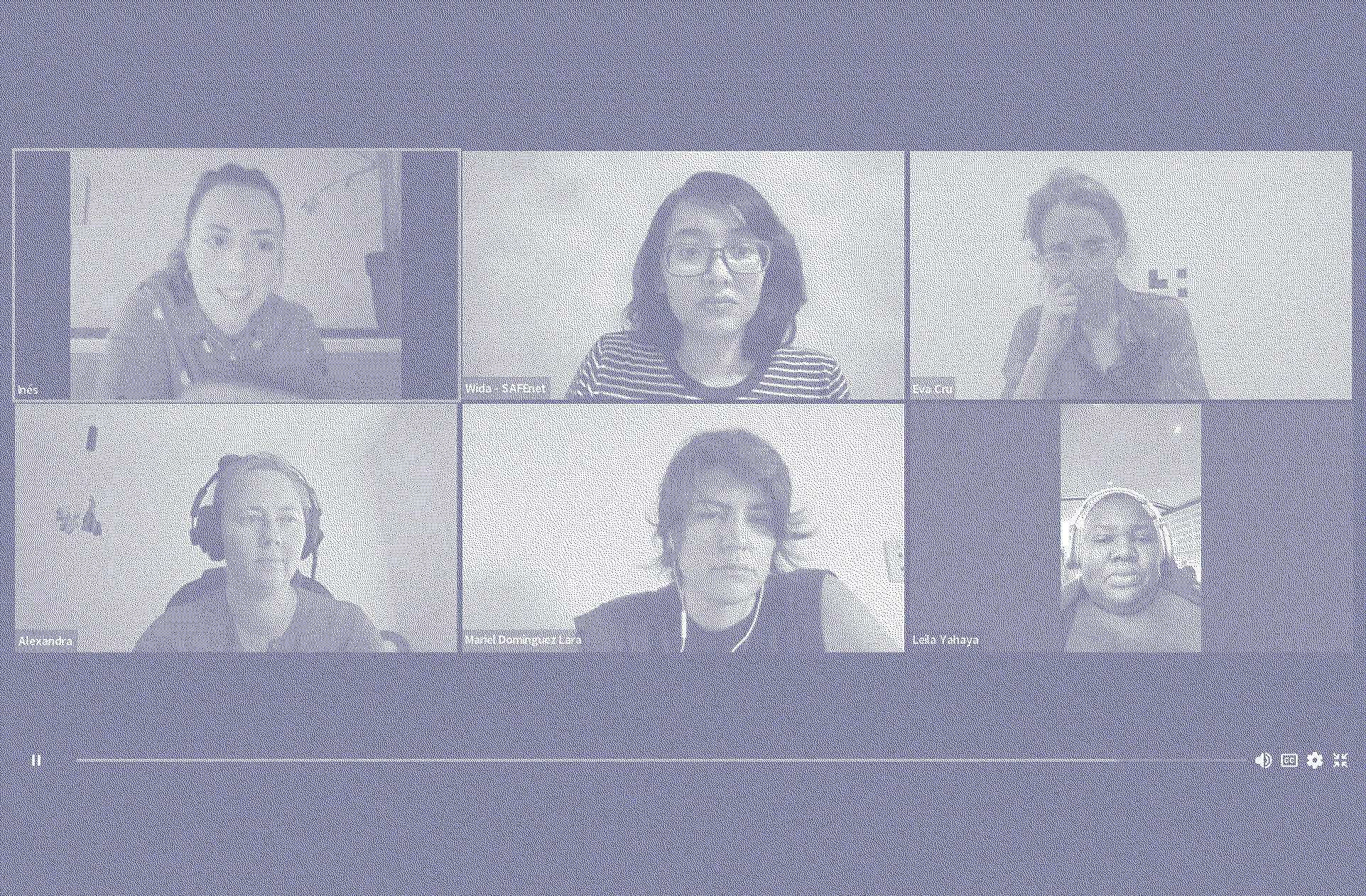Feminist helplines gathered at RightsCon Costa Rica to share their projects. Listen to the session!
On June 6, DDP hosted the session on “Sharing practices in a global community of feminist helplines addressing gender-based violence online” to showcase some of the best practices developed by civil society initiatives working in places such as Catalonia, Ghana, Indonesia and Mexico. We invited:
- Leila Yahaya – Executive Director, One Love Sisters.
- Mariel Domínguez Lara – Corresponsable de la línea de apoyo, Luchadoras.
- Wida, Head of the Division of Equality and Inclusion, Awas KBGO – SAFEnet.
- Eva Cruells López – Coordinator, FemBloc.
Listen to the session 🎙️
Gender-based violence online exists on a continuum: although it can be amplified or facilitated by ICT, it is always an extension of gender-based violence (GBV). Nonetheless, its identification and handling require specific skills, knowledge and resources, often created by under-resourced projects.
The current digital ecosystem exposes many communities to GBV and hate speech risk. In 2021, DDP started research to understand better how existing initiatives to address digital threats support people and collectives mainly targeted by these types of violence.
On the one hand, we saw that the majority of helplines for people facing digital attacks and emergencies are dominated by cybersecurity institutions (e.g. national CERTs and SOCs) and that these institutions are primarily oriented either towards large and medium-sized companies or towards the protection of minors. As a rule of thumb, their view of technology is often apolitical and neutral, and they tend not to have a gender and intersectional perspective in how they approach and analyse the digital risks faced by the different audiences they serve.
On the other hand, helplines set up by and for civil society and specialising in supporting human rights defenders and activists do not always have sufficient resources or experience in supporting people facing gender-based violence and hate speech in digital spaces from a feminist and intersectional perspective.
These gaps result in an international landscape that tends to ignore or not know how to adequately address the risks faced by women, LGTBQIA+ people, and traditionally discriminated against and marginalised populations.
In order to overcome these gaps, and in the face of the daily experience of systematic and structural violence, civil society collectives and communities are organising themselves to create networks of information, support and solidarity to break the sense of isolation, guilt or shame experienced by people facing gender-based violence, and to be able to heal and recover from trauma and, more rarely, access restorative processes.
In particular, we would like to mention the feminist collectives and networks setting up local or regional helplines. Although violence in digital spaces is a global problem, the ways in which it is confronted, mitigated and overcome are always contextual and depend on the social, political, legal, cultural and technical particularities of the environment. Building safer, more respectful and trustworthy spaces is a task that requires a lot of dedication; it is certainly a labour of love and solidarity.
These initiatives are often not visible, precarious and do not usually have the resources to carry out their work optimally. Nevertheless, they are on the front line in the fight against gender-based violence in digital spaces, and today they do not have the support they need, given the scale of their work.
If you want to learn more about the Feminist Helplines Community visit https://www.digitaldefenders.org/feminist-helplines.

